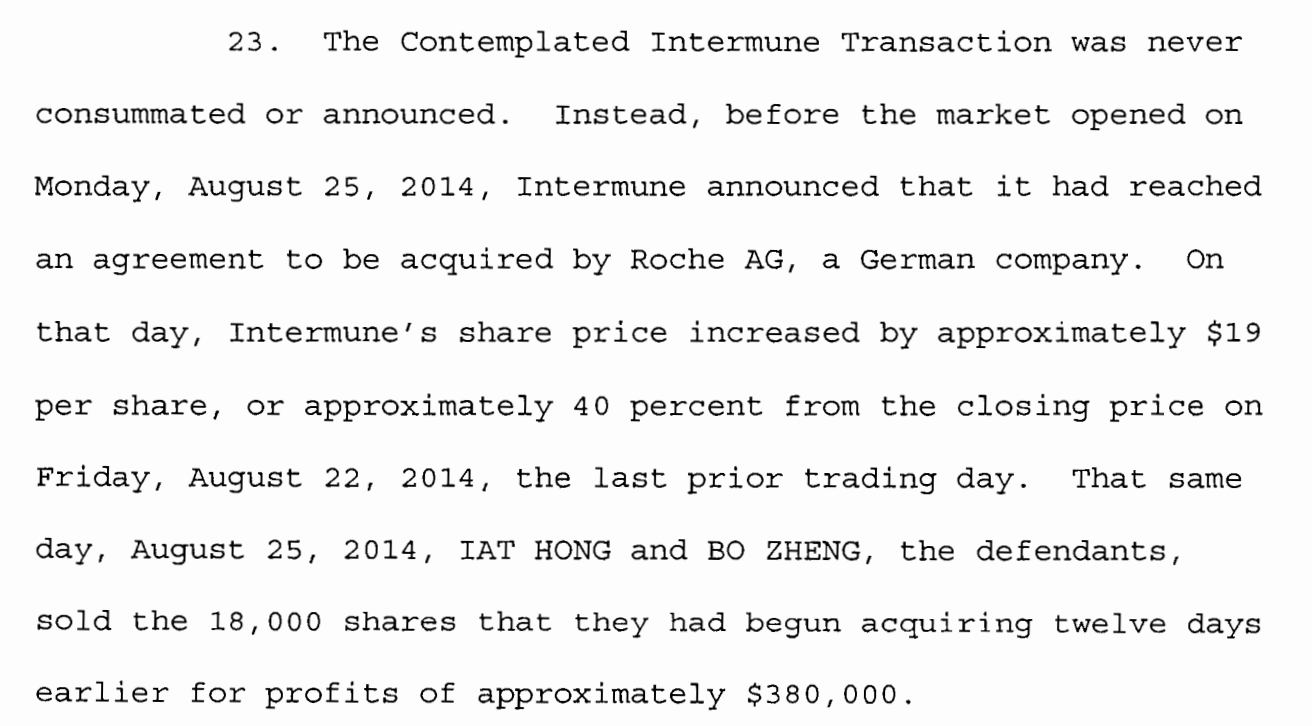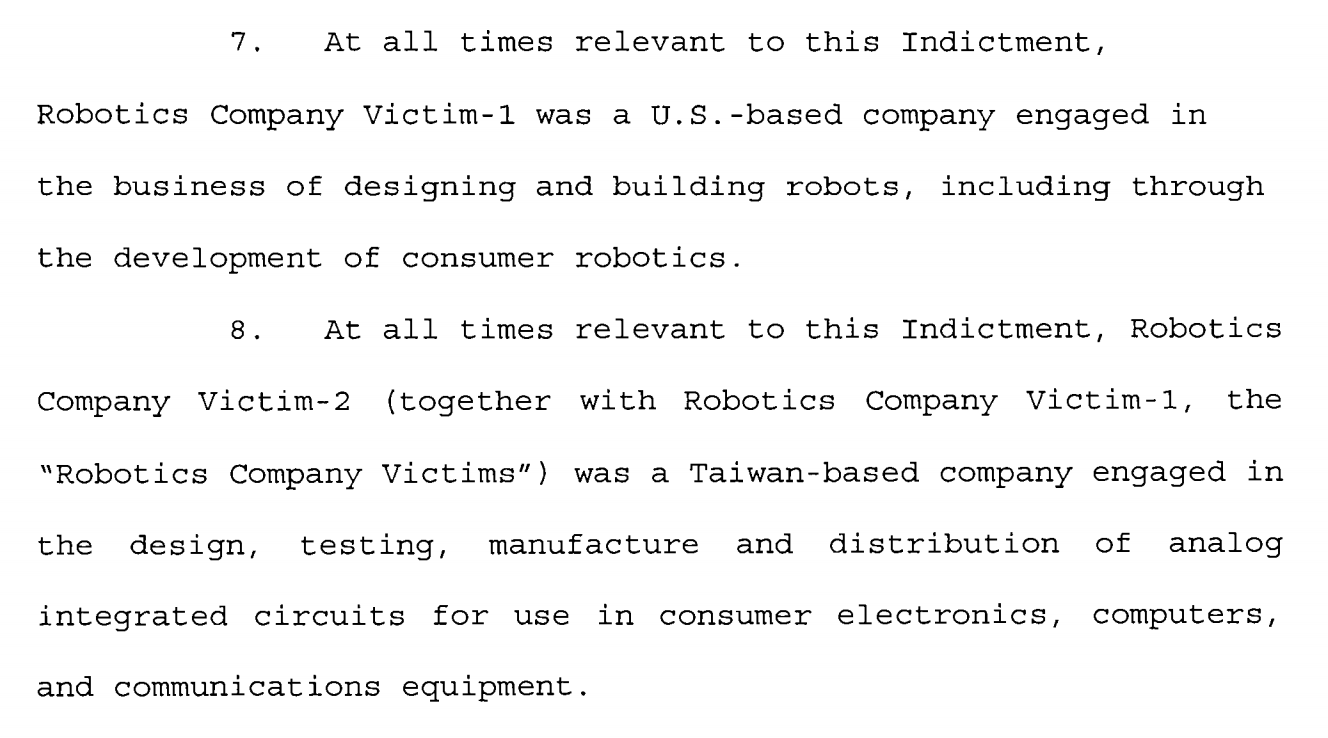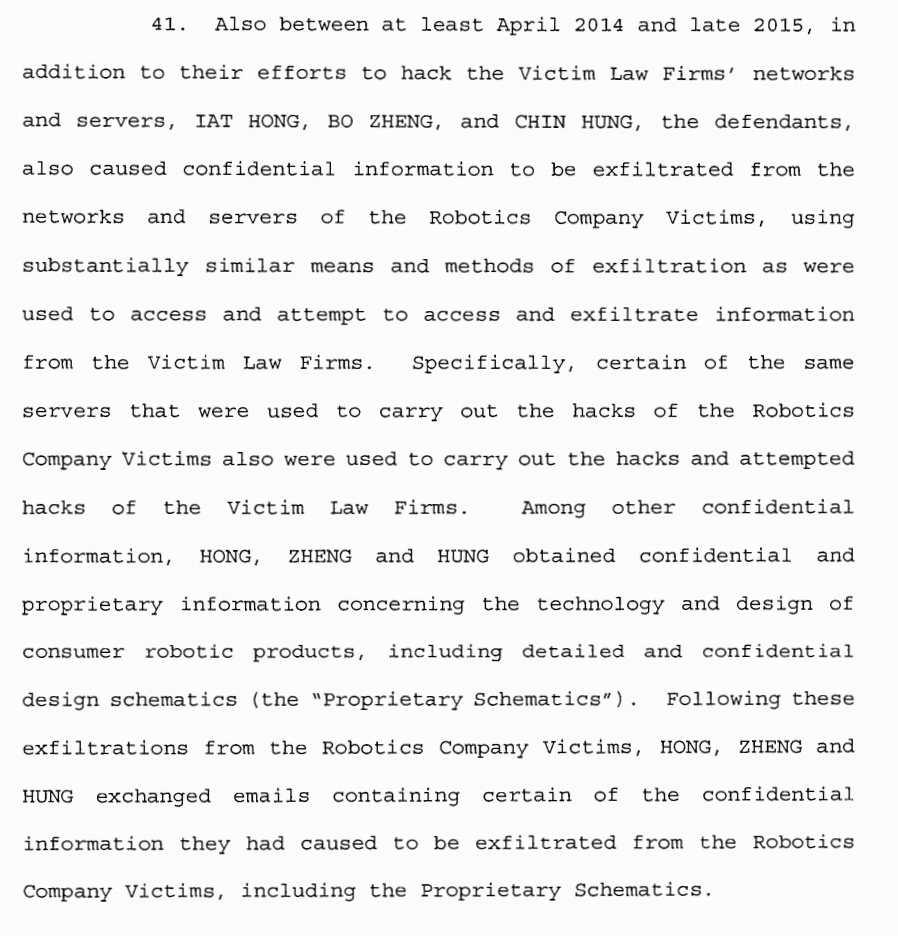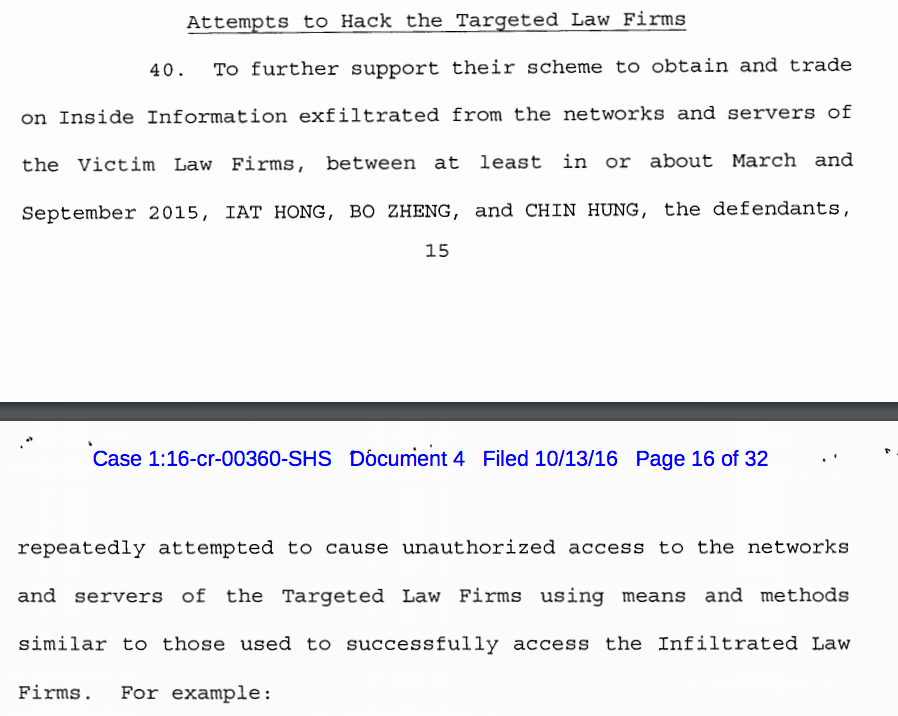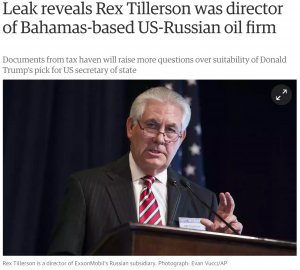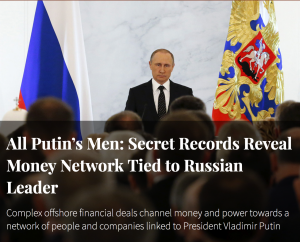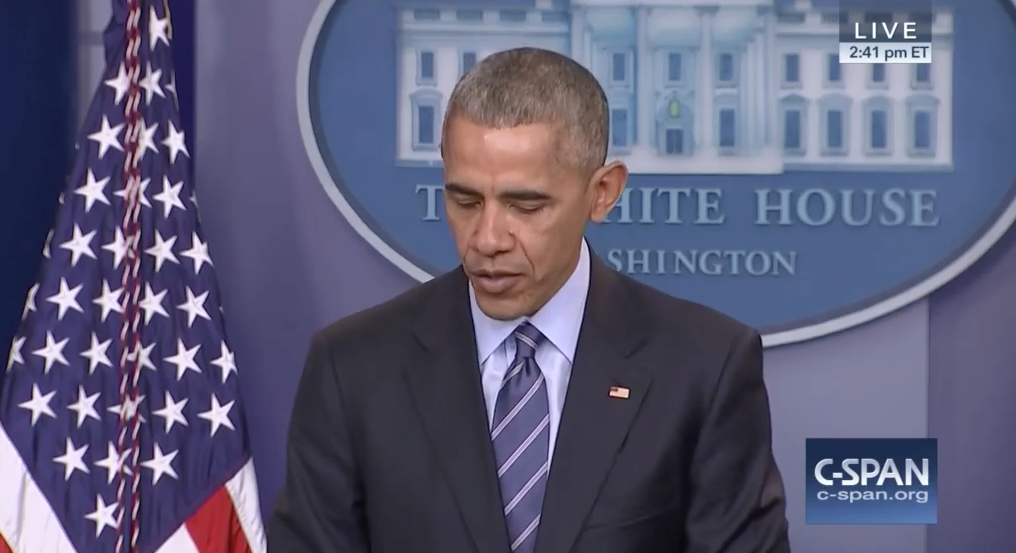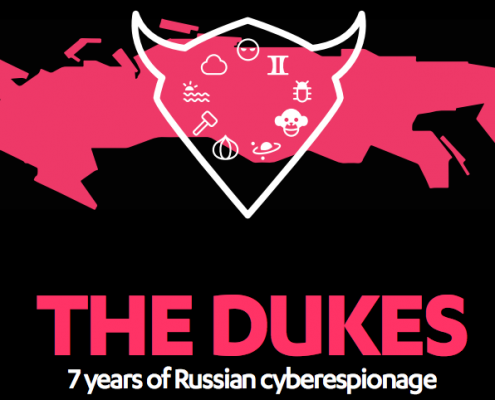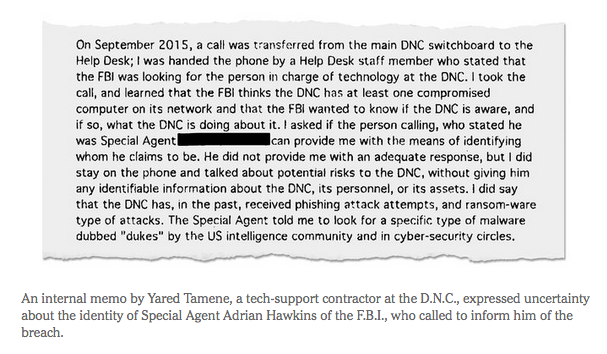President Obama’s comments Friday about the Russian hack of the DNC were a rare occasion where I liked one of his speeches far more than more partisan Democrats.
I think Democrats were disappointed because Obama declined to promise escalation. The press set Obama up, twice (first Josh Lederman and then Martha Raddatz), with questions inviting him to attack Putin directly. Similarly, a number of reporters asked questions that betrayed an expectation for a big showy response. Rather than providing that, Obama did several things:
- Distinguish the integrity of the process of voting from our larger political discourse
- Blame our political discourse (and the press) as much as Putin
- Insist on a measured response to Putin
Distinguish the integrity of the process of voting from our larger political discourse
From the very start, Obama distinguished between politics and the integrity of our election system.
I think it is very important for us to distinguish between the politics of the election and the need for us, as a country, both from a national security perspective but also in terms of the integrity of our election system and our democracy, to make sure that we don’t create a political football here.
This gets to a point that most people are very sloppy about when they claim Putin “tampered” with the election. Throughout this election, the press has at times either deliberately or incompetently conflated the theft and release of emails (which the intelligence community unanimously agrees was done by Putin) with the hacking of voting-related servers (reportedly done by “Russians,” but not necessarily the Russian state, which is probably why the October 7 IC statement pointedly declined to attribute those hacks to Russia).
Obama, after having laid out how the IC provided the press and voters with a way to account for the importance of the Russian hack on the election, then returns to what he says was a successful effort to ensure Russia didn’t hack the actual vote counting.
What I was concerned about, in particular, was making sure that that wasn’t compounded by potential hacking that could hamper vote counting, affect the actual election process itself.
And so in early September, when I saw President Putin in China, I felt that the most effective way to ensure that that didn’t happen was to talk to him directly and tell him to cut it out, and there were going to be some serious consequences if he didn’t. And, in fact, we did not see further tampering of the election process.
This is consistent with the anonymous statement the White House released over Thanksgiving weekend, which the press seems unaware of. In it, the White House emphasized that it was aware of no malicious election-related tampering, while admitting they had no idea whether Russia had ever planned any in the first place.
Blame our political discourse (and the press) as much as Putin
By far the most important part of Obama’s comments, I think, were his comments about why he believed this to be the right approach.
Obama described the October 7 DHS/ODNI statement as an effort to inform all voters of the hack and leak (and high level involvement in it), without trying to tip the scale politically.
And at that time, we did not attribute motives or any interpretations of why they had done so. We didn’t discuss what the effects of it might be. We simply let people know — the public know, just as we had let members of Congress know — that this had happened.
And as a consequence, all of you wrote a lot of stories about both what had happened, and then you interpreted why that might have happened and what effect it was going to have on the election outcomes. We did not. And the reason we did not was because in this hyper-partisan atmosphere, at a time when my primary concern was making sure that the integrity of the election process was not in any way damaged, at a time when anything that was said by me or anybody in the White House would immediately be seen through a partisan lens, I wanted to make sure that everybody understood we were playing this thing straight — that we weren’t trying to advantage one side or another, but what we were trying to do was let people know that this had taken place, and so if you started seeing effects on the election, if you were trying to measure why this was happening and how you should consume the information that was being leaked, that you might want to take this into account.
And that’s exactly how we should have handled it.
Again, I get why Democrats are furious about this passage: they wanted and still want the IC to attack Trump for benefitting from the Russian hack. Or at the very least, they want to legitimize their plan to delegitimize Trump by using his Russian ties with Obama endorsement. From a partisan view, I get that. But I also very much agree with Obama’s larger point: if Russia’s simple hack decided the election, it’s as much a statement about how sick our democracy is, across the board, as it is a big win for Putin.
To lead into that point, Obama points out how many of the people in the room — how the press — obsessed about every single new leak, rather than focusing on the issues that mattered to the election.
[W]e allowed you and the American public to make an assessment as to how to weigh that going into the election.
And the truth is, is that there was nobody here who didn’t have some sense of what kind of effect it might have. I’m finding it a little curious that everybody is suddenly acting surprised that this looked like it was disadvantaging Hillary Clinton because you guys wrote about it every day. Every single leak. About every little juicy tidbit of political gossip — including John Podesta’s risotto recipe. This was an obsession that dominated the news coverage.
So I do think it’s worth us reflecting how it is that a presidential election of such importance, of such moment, with so many big issues at stake and such a contrast between the candidates, came to be dominated by a bunch of these leaks. What is it about our political system that made us vulnerable to these kinds of potential manipulations — which, as I’ve said publicly before, were not particularly sophisticated.
This was not some elaborate, complicated espionage scheme. They hacked into some Democratic Party emails that contained pretty routine stuff, some of it embarrassing or uncomfortable, because I suspect that if any of us got our emails hacked into, there might be some things that we wouldn’t want suddenly appearing on the front page of a newspaper or a telecast, even if there wasn’t anything particularly illegal or controversial about it. And then it just took off.
And that concerns me.
He returns to that more generally, with one of the most important lines of the presser. “Our vulnerability to Russia or any other foreign power is directly related to how divided, partisan, dysfunctional our political process is.”
The more [the review of the hack] can be nonpartisan, the better served the American people are going to be, which is why I made the point earlier — and I’m going to keep on repeating this point: Our vulnerability to Russia or any other foreign power is directly related to how divided, partisan, dysfunctional our political process is. That’s the thing that makes us vulnerable.
If fake news that’s being released by some foreign government is almost identical to reports that are being issued through partisan news venues, then it’s not surprising that that foreign propaganda will have a greater effect, because it doesn’t seem that far-fetched compared to some of the other stuff that folks are hearing from domestic propagandists.
To the extent that our political dialogue is such where everything is under suspicion, everybody is corrupt and everybody is doing things for partisan reasons, and all of our institutions are full of malevolent actors — if that’s the storyline that’s being put out there by whatever party is out of power, then when a foreign government introduces that same argument with facts that are made up, voters who have been listening to that stuff for years, who have been getting that stuff every day from talk radio or other venues, they’re going to believe it.
So if we want to really reduce foreign influence on our elections, then we better think about how to make sure that our political process, our political dialogue is stronger than it’s been.
Now, the Democrats who have celebrated hopey changey Obama have, over the years, recognized that his effort to be bipartisan squandered his opportunity, in 2009, to really set up a structure that would make us more resilient. It is, admittedly, infuriating that in his last presser Obama still endorses bipartisanship when the last 8 years (and events rolling out in North Carolina even as he was speaking) prove that the GOP will not play that game unless forced to.
So I get the anger here.
But, it is also true that our democracy was fragile well before Vladimir Putin decided he was going to fuck around. Even if Putin hadn’t hacked John Podesta, the way in which the email investigation rolled out accomplished the same objective. (Indeed, at one point I wondered whether Putin wasn’t jealous of Comey for having a much bigger effect on the election). Even if some Russians didn’t put out fake news, others were still going to do that, playing to the algorithmically enhanced biases of Trump voters. Even without Putin hacking voting machines, we can be certain that in places like Wisconsin and North Carolina the vote had already been hacked by Republicans suppressing Democratic vote.
The effect Putin was seeking was happening, happened, anyway, even without his involvement. That doesn’t excuse his involvement, but it does say that if we nuked Putin off the face of this earth tomorrow, our democracy would remain just as fragile as it was with Putin playing in it during this election.
So Obama is right about our vulnerability, though I think he really hasn’t offered a way to fix it. That’s what we all need to figure out going forward. But I can assure you: focusing exclusively on Russia, as if that is the problem and not the underlying fragility, is not going to fix it.
Insist on a measured response to Putin
Which leads us to his comments on a response. In spite of repeated efforts to get him to say “Vlad Putin is a big fat dick who personally elected Donald Trump,” Obama refused (though that didn’t stop some papers from adopting headings suggesting he had). Rather, Obama used the language used in the October 7 statement, saying the hacks were approved by the highest levels of the Russian government, which necessarily means Putin authorized them.
We have said, and I will confirm, that this happened at the highest levels of the Russian government. And I will let you make that determination as to whether there are high-level Russian officials who go off rogue and decide to tamper with the U.S. election process without Vladimir Putin knowing about it.
Q So I wouldn’t be wrong in saying the President thinks Vladimir Putin authorized the hack?
THE PRESIDENT: Martha, I’ve given you what I’m going to give you.
Similarly, Obama refused to respond to journalists’ invitation to announce some big retaliation.
I know that there have been folks out there who suggest somehow that if we went out there and made big announcements, and thumped our chests about a bunch of stuff, that somehow that would potentially spook the Russians. But keep in mind that we already have enormous numbers of sanctions against the Russians. The relationship between us and Russia has deteriorated, sadly, significantly over the last several years. And so how we approach an appropriate response that increases costs for them for behavior like this in the future, but does not create problems for us, is something that’s worth taking the time to think through and figure out.
I’m going to return to this to discuss a detail no one seems to get about Obama’s choices right now. But for the moment, note his emphasis on a response that increases costs for such hacks that do “not create problems for us.”
Unsurprisingly (and, given America’s own aggressive cyberattacks, possibly unrealistically), Obama says he is most seeking norm-setting.
What we’ve also tried to do is to start creating some international norms about this to prevent some sort of cyber arms race, because we obviously have offensive capabilities as well as defensive capabilities. And my approach is not a situation in which everybody is worse off because folks are constantly attacking each other back and forth, but putting some guardrails around the behavior of nation-states, including our adversaries, just so that they understand that whatever they do to us we can potentially do to them.
Obama’s approach is “not a situation in which everybody is worse off because folks are constantly attacking each other back and forth.” Does that suggest the US has already been hacking Russia? Why do we never consider whether Putin was retaliating against us? Who started this cyberwar, anyway?
Funny how Americans assume the answer must be Putin.
In any case, we do need norms about this stuff, but that likely would require some honestly about what, if anything, is different about cyber election tampering than all the election tampering Russia and the US have engaged in for decades — which is a point Chilean Ariel Dorfman makes after pointing out the irony of CIA “crying foul because its tactics have been imitated by a powerful international rival.”
Even assuming we’ll never learn the full extent of America’s own recent tampering, that’s likely to be something that Obama is thinking about as journalists and Democrats wail that he isn’t taking a more aggressive stance.
 In my piece on Sunday on the package of sanctions the government released last week, I noted the likelihood the Joint Analysis Report would result in false positives.
In my piece on Sunday on the package of sanctions the government released last week, I noted the likelihood the Joint Analysis Report would result in false positives.




